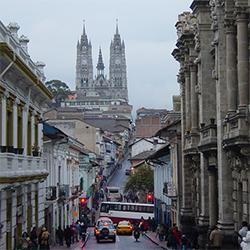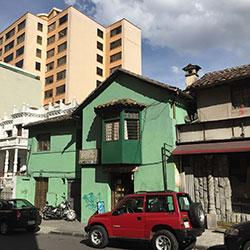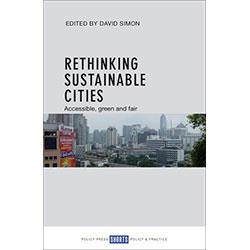
The New Urban Agenda negotiations finalised
The New Urban Agenda that is expected to be adopted at the Habitat III conference in Quito in October, has been discussed and developed through a series of drafts. The semi-final draft was published in late July, and late Saturday 10 September, agreements were finally reached on the remaining issues at an intergovernmental negotiating session in New York.
The Agenda expects a wide range of commitments from nations to promote the achievement of inclusive and accessible cities, where ‘no one is left behind’. It also acknowledges and promotes the importance of sub-national entities, such as cities and regions, alongside national governments and diverse other stakeholder groups in the realisation of the Agenda.
Local governments are to be supported in their role in creating ‘opportunities for dialogue’, including all segments of society. This will require, the Agenda states, ‘an enabling policy framework’ for participatory planning and sharing of best practices, policies and programmes for capacity development. Access to ‘science, technology and innovation and enhanced knowledge sharing’ forms part of the basis for implementation of the Agenda.
'For an international research centre like Mistra Urban Futures, the explicit recognition of the value of co-production as an approach that contributes towards the objectives of inclusiveness and sustainability is very welcome and an important endorsement', Prof David Simon, Director of Mistra Urban Futures, comments.
The UN member states commit to promoting the development of digital governance tools that are ‘citizen-centric’ in order to enabling participation and responsible governance. Research will be supported, including ‘robust science-policy interfaces’ in urban planning and policy making.
Some issues that were left for the final consensus discussion this weekend included the future role of UN Habitat in follow-up and monitoring the implementation of the New Urban Agenda. Another obstacle has been the acknowledgement of the Right to the City movement, which now seems to have been solved - although as a compromise.
The New Urban Agenda can be downloaded from the Habitat III website
Mistra Urban Futures will be represented at Habitat III in Quito, as an associate partner to the World Urban Campaign, an advisory body to the Director of UN Habitat and in several side and networking events
David Simon, who submitted comments on earlier drafts, adds: 'Reaching agreement after protracted and at times heated negotiations spanning nearly two years is a notable achievement because of the specific universal commitments to urban sustainability by all countries. Although critics will argue that the NUA is too long, complex and lacking in depth or ‘teeth’, as a club of national governments, the UN has never before formally recognised the central role of sub-national entities, even within the government sector. This remained one of the contentious issues until the end. The contributions of academia, science and science-policy interfaces are all recognised but not by means of any particular advisory body status as many had sought'.
For more information on Mistra Urban Futures' participation at Habitat III, contact David Simon or Jan Riise
Photo: Gert Olsson / Shutterstock







